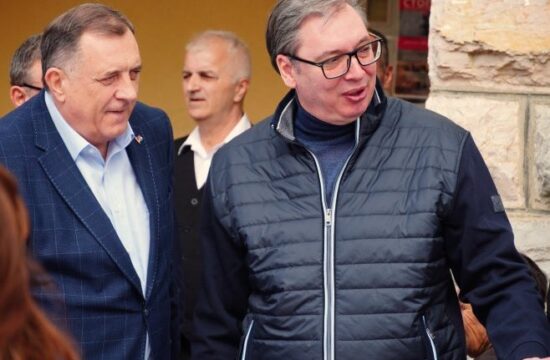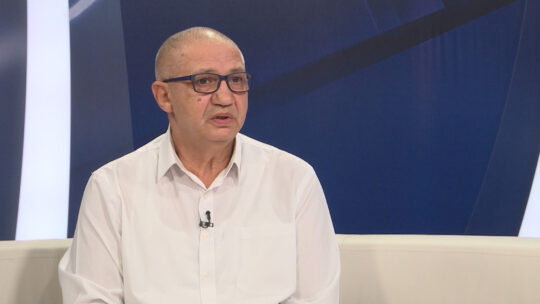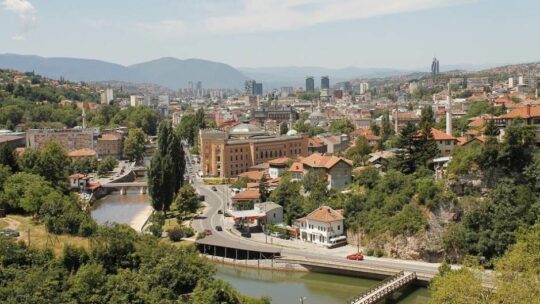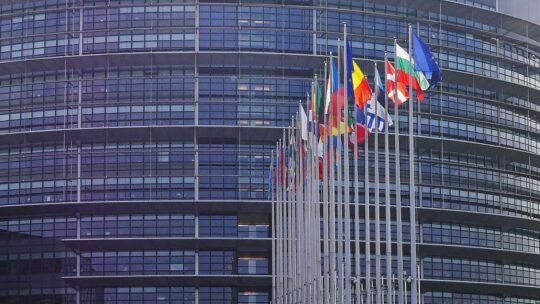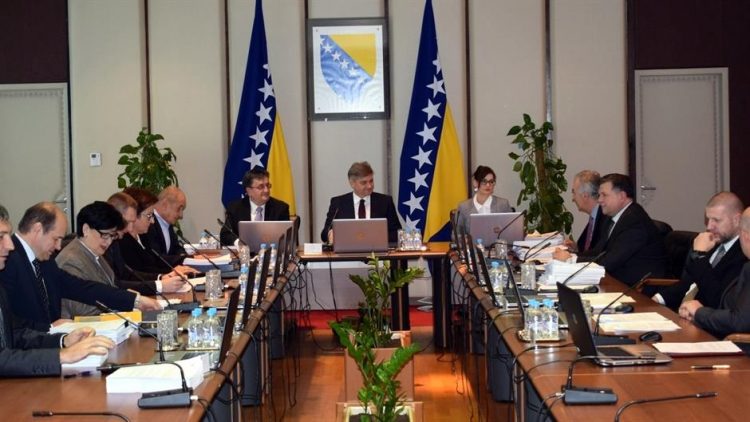
Bosnia and Herzegovina's Council of Ministers (CoM) Chairman Denis Zvizdic is shifting the arguments and acting in a non-diplomatic way, said CoM Deputy Chairman Vjekoslav Bevanda as a response to the letter Zvizdic sent to the Croatian Prime Minister earlier on Friday.
“Zvizdic is using the already tried recipe of shifting the arguments and is, in a recognisable way, insinuating and in an obscure and non-diplomatic way denying your statements at the European Union's institutions, where you acted in a manner of a proved democrat and acknowledged politician with an intention to contribute to the recognising and removing of the observed non-democratic barriers that followed in Bosnia and Herzegovina after the October election,” Bevanda said in his note.
The letter came as a reaction after CoM Chairman addressed Croatia's Andrej Plenkovic, who in his communication with the EU officials, raised the issue of Bosnia's October 7 general election outcome and the election of the Croat member of Bosnia's Presidency.
“I explained that we were worried about the Bosniaks, who are a majority people in the Federation (of Bosnia and Herzegovina) electing a representative of the Croat people in the presidency against the will of Bosnian Croats. We explained that the spirit of Dayton (Agreement) was betrayed and that the scenario was not good either for the functioning of Bosnia and Herzegovina, or for the three constituent peoples (Croats, Bosniaks, and Serbs), in this case for the Croat people,” Plenkovic told reporters after an EU summit in Brussels on Thursday.
This triggered a reaction of Chairman Zvizdic, who said the Croatian PM was misinterpreting the situation and that his interference with the internal matters of Bosnia was not in line with good neighbourly relations.
Bevanda, also a senior official in Bosnia's state government, disagreed with Zvizdic. According to him, Plenkovic “as a legitimate representative of the Republic of Croatia,” one of the signatories of the Dayton Agreement, had an obligation to protect the provisions of this document that ended the 1992-95 Bosnian war and was a ground for Bosnia's state Constitution.
Zvizdic obviously ignored the fact that the Republic of Croatia was a co-signatory of the Dayton Peace Agreement, said Bevanda in the letter he sent to Croatia's PM. Also, he added, Zvizdic's stand on the matter is not the official stand of the Council of ministers but “solely the personal or partisan stands, and a poor attempt of politicising and misinforming the public.”
The series of reactions was sparked by the election of the Croat member of Bosnia's state Presidency, which the nationalist Croat Democratic Union (HDZ BiH), the sister party of Plenkovic's ruling HDZ, strongly disapproves. They claim that Zeljko Komsic, the social-democrat who won in the run for the Presidency was elected owing to the votes of the Bosniaks and not the Croats which, according to them, makes him an illegitimate representative.



